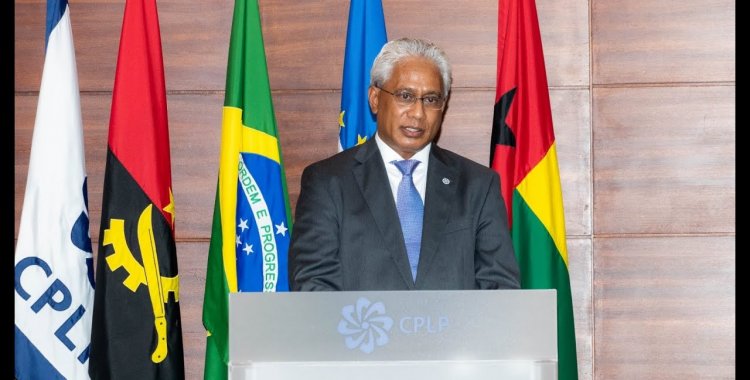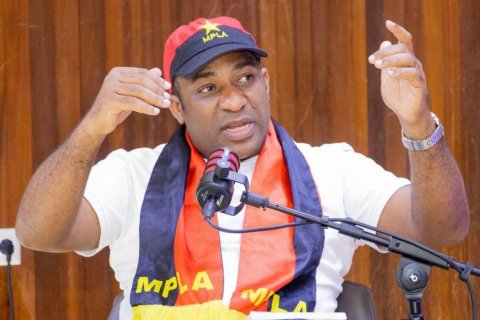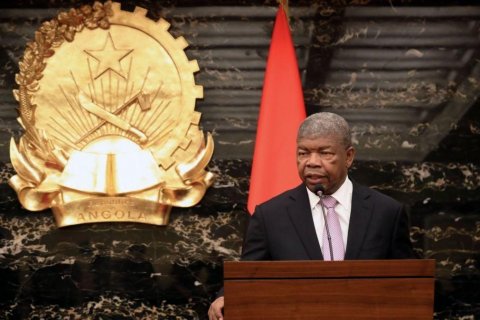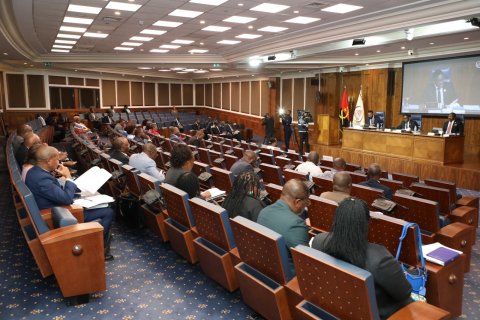"I believe that the great challenge that we will have ahead of us, in the near future, will be to promote a facilitated framework of economic and business cooperation, namely in terms of the internationalization of companies, the mutual protection of investments and the increase in trade", said Zacarias da Costa.
During the closing session of the teaching part of the Specialization Course in Economic and Financial Crime, which took place during the afternoon at Colégio da Trindade, in Coimbra, the executive secretary discussed the adoption of a new objective of economic cooperation, to the consolidation of the CPLP.
The former Timorese Foreign Minister highlighted the enormous economic potential of the countries that belong to this community, which represents around 300 million people.
"It represents about 8 percent of the planet's continental surface, having more than 50 percent of the new discoveries of energy resources since the beginning of the 21st century. It will be in fourth place in world oil production and has a vast continental platform with marine resources and minerals, as well as approximately 14 percent of the world's freshwater reserves," he said.
Zacarias da Costa highlighted the international recognition of the community's potential, which has been attested by the growing number of associated observers, which currently total 32: 28 countries and four international organizations.
"Alongside diplomatic, cultural motivations and even through diaspora communities, the associated countries see the CPLP as a potential facilitator platform for economic partnerships, and it is up to us, too, to develop instruments that allow us to take greater advantage of this attractiveness of our organization", he concluded.
The CPLP executive secretary also took the opportunity to stress the importance of adopting the Agreement on Mobility in the CPLP, which will allow for the establishment of facilitating mechanisms for the circulation of people and ideas.
"Ahead of us is the challenge of making the CPLP an increasingly efficient instrument with an increasing impact on the development of our Member States", he added.
On the strategic agenda for this purpose, he explained that it includes seven axes for joint action, aimed at promoting trade, promoting investment, institutional and business capacity building, improving financing mechanisms, strengthening competitiveness, strengthening national industrial property systems, and the development and consolidation of national infrastructures for quality.
Alongside this, he also said that the Forum of Agencies for the Promotion of Foreign Trade and Investment of the CPLP had been set up, with the objective of "promoting the exchange of good practices, training initiatives and institutional capacity building, as well as joint actions in matters such as internationalization of companies, the increase in trade and investment in strategic sectors".
"We want our companies to be increasingly capable of meeting the demands to compete in the global market. It means a commitment to training and education, quality assurance, improving the business environment, supporting access to finance and to internationalization", he concluded.
The Specialization Course in Economic and Financial Crime is an advanced training course for 15 judges and senior staff from the State bodies of Timor-Leste, namely the National Parliament, Public Ministry, Scientific and Criminal Investigation Police, Anti-Corruption Commission and General Inspection of State.
Taking place in Coimbra, it started on the 6th of February and runs until Friday, including visits to external entities in the week of the 20th to the 24th of February.
It is taught through the Sino-Lusófona Academy of the University of Coimbra (special project of the Rectory) and financed by the European Union, through the PFMO project - Partnership for the improvement of service provision through Supervision and Management of Public Finances in Timor-Leste (Osan Povu Nian), implemented and co-financed by the Ministry of Foreign Affairs/Camões-IP.
Angola, Brazil, Cape Verde, Guinea-Bissau, Equatorial Guinea, Mozambique, Portugal, São Tomé and Príncipe and Timor-Leste are the nine Member States of the CPLP.







